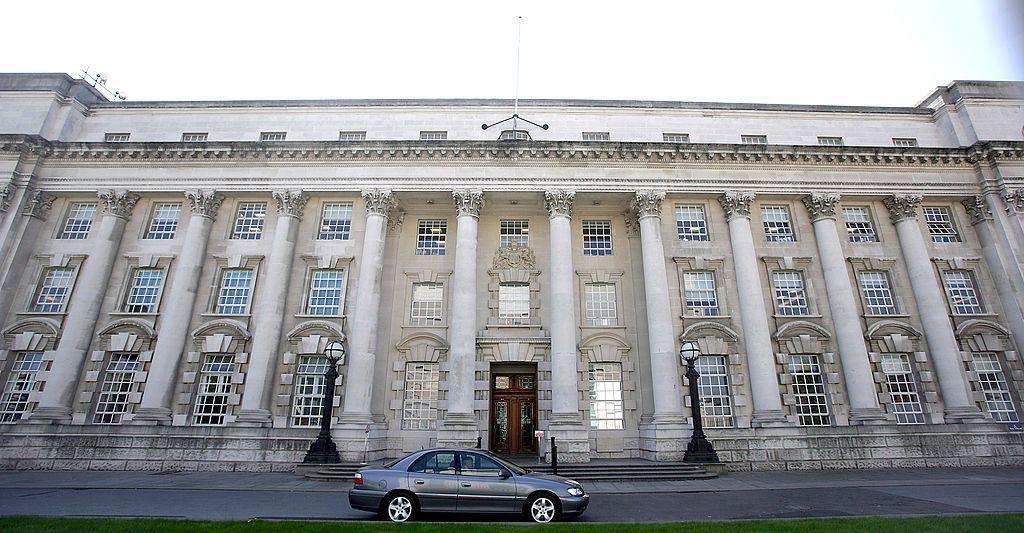Woman's conviction for murdering soldier overturned

The case was heard at the Court of Appeal in Belfast
- Published
A woman jailed for the murder of a British soldier 50 years ago has had her convictions quashed by the Northern Ireland Court of Appeal.
Senior judges ruled that Pauline McLaughlin’s low IQ raised doubts about the reliability of alleged admissions to offences linked to the IRA killing of 2nd Lt Michael Simpson.
2nd Lt Simpson was shot dead while on patrol in the Shantallow area of Londonderry in October 1974.
Ms McLaughlin, 67, was convicted in 1978 of eight offences, including the murder of 2nd Lt Simpson, the attempted murder of his colleague, causing an explosion and belonging to the IRA.
By that stage three men had already been jailed for their roles in the killing.
Aged 17 at the time of the shootings, Ms McLaughlin allegedly admitted transporting a rifle to the house used as a firing point and returning the weapon afterwards.
She was also prosecuted over separate bombing incidents at a factory and a warehouse in the city in October 1974 and September 1975.
She was jailed but was later released in 1981 on medical grounds.
Her appeal was based on fresh evidence which became available during a re-examination by a body set up to look into potential miscarriages of justice.
Issues were raised about Ms McLaughlin’s intellectual capacity at the time of her arrest.
Her defence claimed her legal representatives at the original trial did not act in accordance with instructions, failing to deploy available evidence of her illiteracy and alleged police ill-treatment.
It was contended that she had been convicted without properly scrutinising the reliability of statements of admission or assessing the required criminal intent to commit the offences.
'Stark and exceptional circumstances'
The court heard a clinical psychologist concluded before her trial that she was in a “high grade mentally subnormal category”.
It was also accepted that Ms McLaughlin was shown at least one photograph of a corpse during police questioning.
On Thursday, Lady Chief Justice Dame Siobhan McKeegan said the appeal had identified “stark and exceptional circumstances” related to the defendant’s mental age and intellectual capacity at the time.
“This evidence raises a valid query as to her reliability in terms of standards prevailing in 1977 never mind 2024,” the lady chief justice said.
“This was a vulnerable young woman, with an IQ of 64 in the learning disability bracket. The prosecution was clearly alive to the issue.
"Yet there we no safeguards provided to protect her including access to a lawyer and an appropriate adult.”
Dame Siobhan suggested defence lawyers could have claimed Ms McLaughlin had been subjected to psychological pressure if they had known officers had shown an image of a dead body to a vulnerable woman.
“Furthermore, if the trial judge had been aware of this, we consider there is a real possibility that he would have taken a different course in the case as he would have been slow to conclude that the confession was reliable,” she added.
The lady chief justice added: “Accordingly, we cannot be satisfied as to the safety of these convictions… and we will quash.”